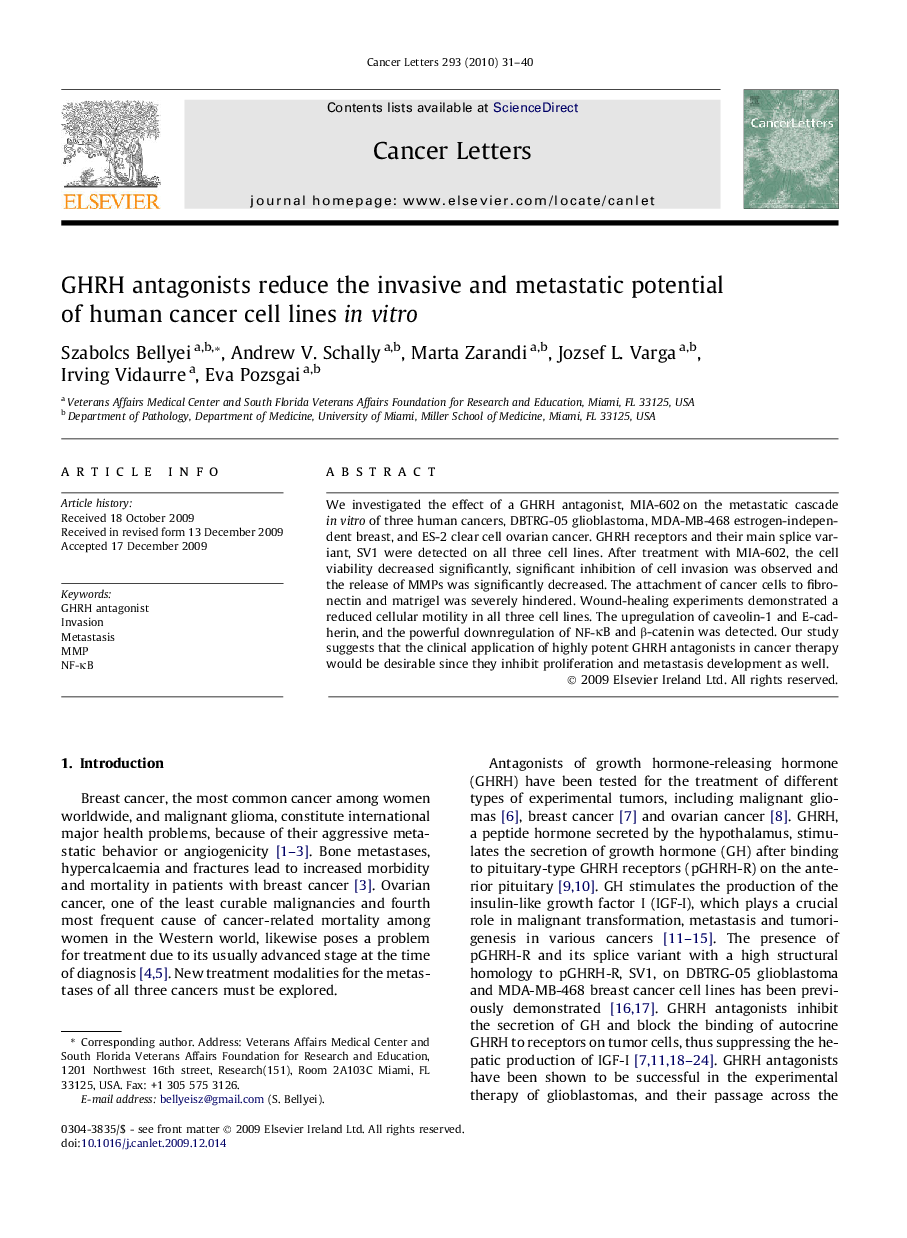| Article ID | Journal | Published Year | Pages | File Type |
|---|---|---|---|---|
| 2114112 | Cancer Letters | 2010 | 10 Pages |
We investigated the effect of a GHRH antagonist, MIA-602 on the metastatic cascade in vitro of three human cancers, DBTRG-05 glioblastoma, MDA-MB-468 estrogen-independent breast, and ES-2 clear cell ovarian cancer. GHRH receptors and their main splice variant, SV1 were detected on all three cell lines. After treatment with MIA-602, the cell viability decreased significantly, significant inhibition of cell invasion was observed and the release of MMPs was significantly decreased. The attachment of cancer cells to fibronectin and matrigel was severely hindered. Wound-healing experiments demonstrated a reduced cellular motility in all three cell lines. The upregulation of caveolin-1 and E-cadherin, and the powerful downregulation of NF-κB and β-catenin was detected. Our study suggests that the clinical application of highly potent GHRH antagonists in cancer therapy would be desirable since they inhibit proliferation and metastasis development as well.
